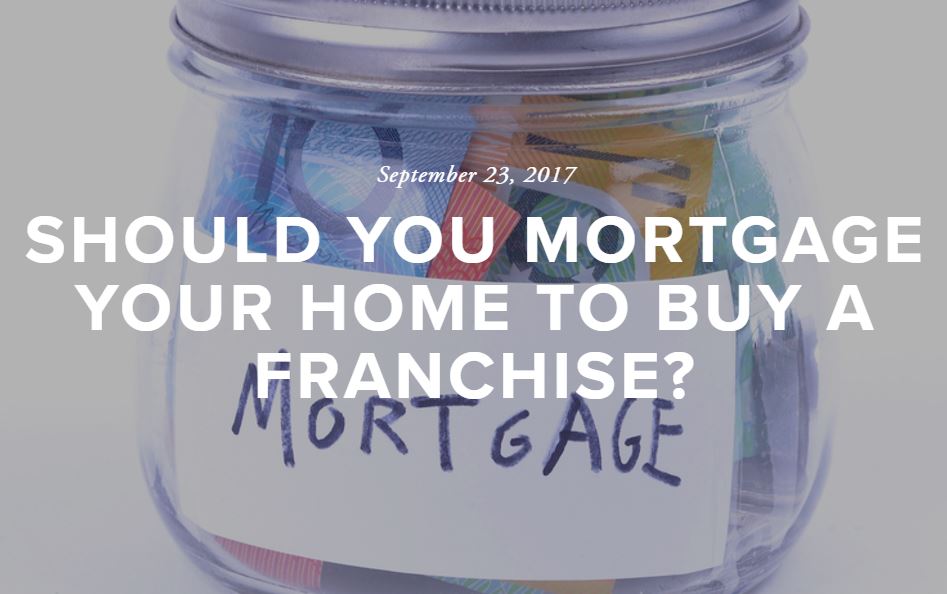By Kate Groom from Franchise Accounting & Tax

Thinking of buying a franchise? If so, you might be thinking of taking out a mortgage to finance the business. However, a mortgage isn’t the only way to finance a franchise. In this article, we take a look at the pros and cons of using your home as security for a business loan and consider some alternatives.
ADVANTAGES OF MORTGAGING YOUR HOME TO BUY A FRANCHISE
You can’t start a franchise without putting in your own money, but what if you don’t have cash in the bank? In this case, mortgaging your house can help you get started in business.
It’s true that some banks will lend money secured against a business but they will also expect you to invest your own money. So, unless you have cash savings, or shares, or property you can sell, you will need to unlock some of the cash tied up in your house.
A home mortgage isn’t the only source of finance for a business, but it will usually be the cheapest form of debt. Not only are the interest rates low (compared with, say, credit card debt) but the interest is often tax-deductible in the business.
IS THERE A DOWNSIDE?
A home mortgage may be an attractive form of finance for a franchise, but it’s important to consider the downsides before you rush out and refinance your home. For instance:
Loan repayments will add to the cost of operating the franchise. Each month the business will need to cover these payments from its revenue – and you won’t have the option of not making the payments if sales are not as good as you hope for.
You could be left with a debt once you leave the franchise. Let’s say you increase your mortgage by $200,000 to buy the franchise but only repay $100,000 before you exit the business. You now have more mortgage debt than you started out with but no business income to finance this extra loan.
And the big one people tend to be concerned about … if things don’t go well, you might have to sell your house.
If you can’t afford your mortgage payments you may have to sell your home in order to repay the loan. This is as true for a business owner as for someone who is an employee. However, a business owner may find ‘crunch time’ comes sooner. Here’s why:
If you lose your job, your first option is to find another one so you can keep paying the mortgage.
But when you own a franchise it’s not so easy to find another source of income. If you can’t afford the mortgage payments you can’t simply get another job. If the business can’t be improved or readily sold, you may need to sell your house to reduce the burden of debt.
WHAT ARE ALTERNATIVE SOURCES OF FINANCE?
Mortgage finance may be the obvious option but it isn’t the only way to finance your franchise. In fact, the best option may be to use several different sources of finance.
In our experience there are four common sources of finance for a franchise:
Cash. By this I mean money you have saved up to invest in a business. This might be unfashionable, but it certainly reduces the financial burden on your business.
Money from a family member.
Asset finance. Several finance companies will provide finance to lease equipment or franchise fitouts. This can be a very good option.
A small unsecured loan or a credit card.
Given the risks associated with mortgage finance, a blended approach might be a very good way to go. It may take a little time to put together a blend of finance sources, but this approach can give your business a sound financial footing and help protect your home.
Kate Groom is Client Solutions Director at Franchise Accounting & Tax: Australia’s first specialist accounting firm for franchises. This article was written by Kate and first published on www.franchiseaccountingandtax.com.au
